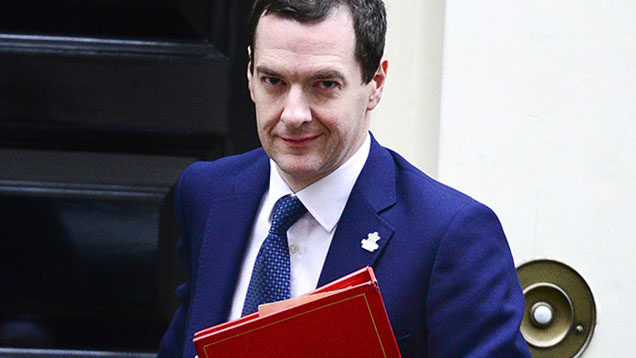Some boosts for farm businesses in chancellor’s autumn statement
 © Rex
© Rex The chancellor’s autumn statement contained a mixture of broad measures that will affect most farm businesses and more complex changes that will have a more direct and larger affect for some.
Broad measures include a freeze on fuel duty and an increase to the personal income tax allowance to £10,600 from April 2015.
The threshold at which taxpayers start paying higher (40%) tax rate also increases by £500 to £42,385.
National insurance for apprentices under 25 years old was removed.
See also: Five-point strategy for a great farm business plan
But the NFU was disappointed that no mention was made of the annual investment allowance, or measures to encourage investment in business infrastructure or manage volatility, all of which it had lobbied for.
Small business rate relief was extended in time and in value, a move that could help diversified farm businesses, while changes to pensions and ISA tax rules could help pensioners’ widows and widowers.
The headline reform to stamp duty bands was designed to encourage housing market movement and will mainly affect residential property, as farms usually qualify as non-residential and mixed-use properties for which the rate is capped at 4% above £500,000.
Key points – 2014 Autumn Statement
- Personal tax allowances raised but no change to rates
- Fuel duty frozen for a year
- National Insurance concessions to help employers offer apprenticeships
- Business rates relief extended and increased
- Improvements to pensions and ISA tax rules when holder dies
- New rules to target tax avoidance through use of multiple trusts
However, for sellers of smaller lifestyle farms or estates where much of the value is accounted for by residential property, it would be even more important to structure sales to be sure of qualifying for the mixed-use rate, said James Prewett, head of regional farms at Knight Frank.
For example, the stamp duty land tax on a £5m residential sale will now be almost £515,000, compared with £350,000 under the former system. However, if the sale qualifies as a mixed-use transaction, the bill would be £200,000.
“It will be worth paying particular attention when lotting farms as the tax bill under the new system could be much higher. You also want to make sure your accountant is confident putting a robust case to your district valuer,” said Mr Prewett.
A new tax relief on business investments in flood defences was announced, which could be offset against corporation or income tax.
The government’s infrastructure investment plans have been widely reported over the past few days, much of which will involve the compulsory purchase of farmland.
However, hidden in the Treasury documents accompanying the chancellor’s speech was the announcement of a review of compulsory purchase law, something for which the CLA has been lobbying for many years. CLA president Henry Robinson described this as a breakthrough.
The CLA also welcomed a review of business rates, due to report in the budget of 2016, but was disappointed that business rates on empty properties were not removed. It argued this was needed to bring these properties back into use.
Carlton Collister, a partner in accountant landtax, pointed out the Finance Bill resulting from next year’s budget was likely to be published towards the end of March 2015.
“The clauses in the bill which are uncontentious are likely to be enacted before Parliament is dissolved prior to the general election. There will then be a further one, or possibly two, Finance Bills/Acts in 2015 to bring in the other provisions of the coalition, or the new government. There were three Finance Acts in 2010 in equivalent circumstances.”
